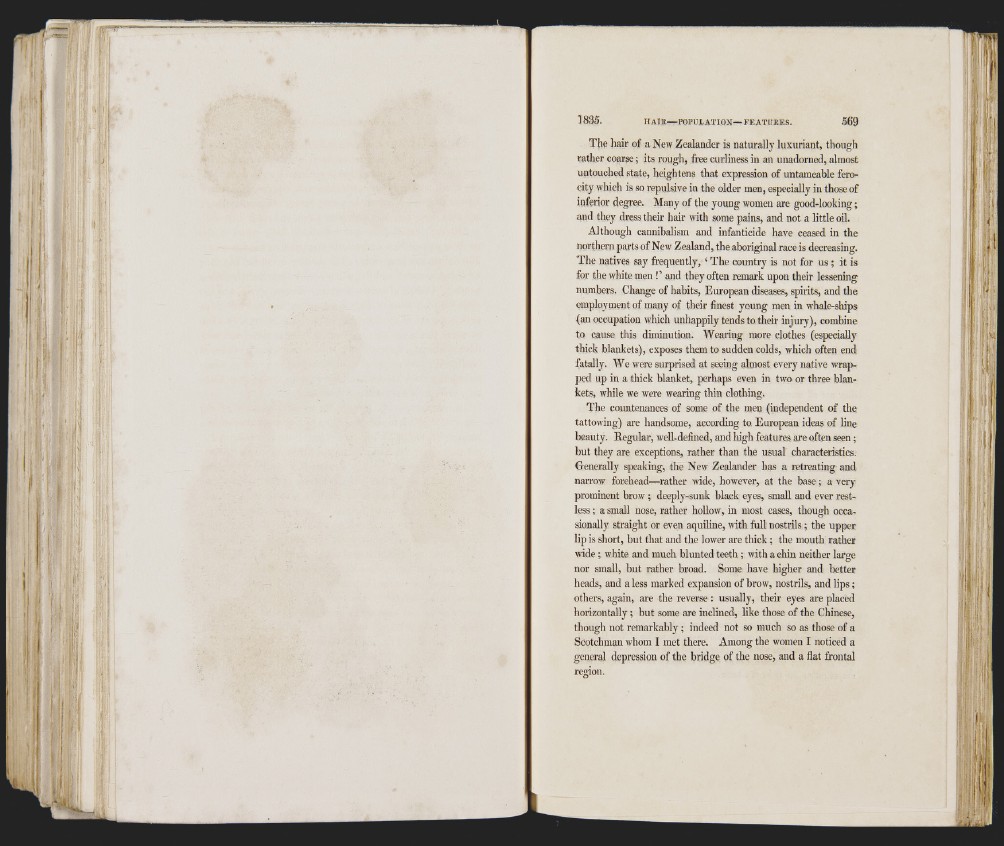
The hair of a New Zealander is naturally luxuriant, though
rather coarse; its rough, free curliness in an unadorned, almost
untouched state, heightens that expression of untameahle ferocity
which is so repulsive in the older men, especially in those of
inferior degree. Many of the young women are good-looking;
and they dress their hair with some pains, and not a little oil.
Although cannihahsm and infanticide have ceased in the
northern parts of New Zealand, the aboriginal race is decreasing.
The natives say frequently, ‘ The country is not for us ; it is
for the white men !’ and they often remark upon their lessening
numbers. Change of hahits, European diseases, spirits, and the
employment of many of their finest young men in whale-ships
(an occupation which unhappily tends to their injury), combine
to cause this diminution. Wearing more clothes (especially
thick blankets), exposes them to sudden colds, which often end
fatally. We were surprised at seeing almost every native wrapped
up in a thick blanket, perhaps even in two or three blankets,
while we were wearing thin clothing.
The countenances of some of the men (independent of the
tattowing) are handsome, according to European ideas of line
beauty. Regular, well-defined, and high features are often seen ;
but they are exceptions, rather than the usual characteristics.
Generally speaking, the New Zealander has a retreating and
narrow forehead—rather wide, however, at the base; a very
prominent brow ; deeply-sunk black eyes, small and ever restless
; a small nose, rather hollow, in most cases, though occasionally
straight or even aquiline, with full nostrils ; the upper
lip is short, but that and the lower are thick ; the mouth rather
wide ; white and much blunted teeth ; with a chin neither large
nor small, hut rather broad. Some have higher and better
heads, and a less marked expansion of brow, nostrils, and lips ;
others, again, are the reverse : usually, their eyes are placed
horizontally ; but some are inclined, like those of the Chinese,
though not remarkably ; indeed not so much so as those of a
Scotchman whom I met there. Among the women I noticed a
general depression of the bridge of the nose, and a flat frontal
ren-ion.
i 1*1
•ii